- Home
- B. V. Larson
Conquest (Star Force Series) Page 15
Conquest (Star Force Series) Read online
Page 15
“Commence firing. Bring them down!”
On the big screen, hundreds of thin green lines lanced out. They intersected on four points. At the center of each of those points, I knew, was an enemy cruiser under withering fire. If they would have just come in closer and lower, I could be certain of a win. But they were hanging back, wisely feeling their way. They would pound us while standing out over the ocean. From that position, they directed their more heavily armored snouts toward us.
Major Sarin had the counter up by now I glanced at it and my cheek twitched. We’d lost twelve turrets already. We hadn’t taken out a single cruiser yet.
“Barrera,” I shouted, “release the reserves. Send half the hovertanks to the east coast of the island. We need more firepower.”
“Relaying that, sir,” Barrera said. He sounded self-assured again, now that we were firing.
The laser turret count dipped down, they’d destroyed sixteen. Then suddenly, almost at the same moment, three of the enemy cruisers fell from the sky, burning. One exploded in a white flash.
A happy sound swept around the table. “Got a few of them, anyway,” Kwon said expelling his breath as if he’d been holding it since the beginning. Maybe he had been.
I watched as the cruisers halted fully. It would be long minutes before the hovertanks could come out of their bunkers and fly to the east coast. I didn’t like committing reserves so early, but I couldn’t help but worry they’d demolish our defenses on one side of the island, then slowly swing around, cleaning off my ring of defenses. It was all a matter of attrition now, whichever side could take out the other faster would win.
The enemy fire was a shower of orange sparks that came down from each ship in continuous, pulsing streams from nearly a hundred cannons. In return, our fire was represented on the screen as green lances that drew thin lines from a spot on Andros up to the attacking ships. The green lines drew fans from many guns to each cruiser’s belly. As soon as a ship went down, the beams cut out and moments later retargeted another ship and fired again. The cruisers came in a fraction closer, and I saw a new set of beams leap up to greet them. These were from the defensive grid around Fort Pierre itself. The laser turret count leapt upward by forty-one guns.
“They are in our range now,” Sandra said happily.
“Yeah,” Kwon said, “but that means they will begin pounding this base in return.”
As if he were a prophet of doom, the impacts began seconds later. I’d been under fire many times, all of us had. But this was the worst bombardment I’d ever experienced. The walls shook and buckled. The computer table flickered as base power was cut out and the system automatically switched to backup fusion generators located in the bunker itself. I hoped our nanite lines which had dug themselves through the soil to sensor systems on the surface wouldn’t be cut. The sensors themselves were unlikely to be knocked out as they were placed a half-mile out in the empty forest that surrounded the base.
The battle raged on, and I was pretty much helpless to do much about it. The enemy had lost twenty-one cruisers, but our count of active turrets had dropped to about one hundred forty. I calculated our odds, and didn’t like them. They were at eight percent, while we were down to fifty. Once they broke the coastal defenses, they could cruise up or down the beach, outgunning us over every mile of beach. I began to sweat and to wish I’d had the foresight to place a massive central fortification in the middle of the island that could not be out maneuvered. If I’d built longer range lasers in the center, it would be much harder to break Andros. Unfortunately, I’d originally fortified the island with human enemies in mind. Those days seemed very distant now—almost absurd.
The walls shook and buckled. Everyone staggered in their suits.
“A direct hit,” I said. “what’s happening topside, Major Sarin?”
“The headquarters building is gone, sir. We’ll have to dig out after this.”
I nodded. I looked around at the walls, which now bulged in spots. The nanites weren’t able to keep back the pressure from the surrounding earth as it pressed in on our bunker. I turned to Kwon.
“Bring your marines down to this level. We’ll all be safer down here.”
He clanked off and began shouting up the stairs. His platoon hurried down to his call and crowded into the command post around us.
“Just stay back, stay quiet and don’t bump the table, marines,” I told them.
They stood around awkwardly, trying to follow my instructions. When we were down to less than one hundred active guns in range, the Macro fleet began to drift northward. They had seventy of their ships still operating, plus that dreadnaught. That they were moving northward was good news for us personally, as it upped our odds of survival. They were no longer pulverizing our base. But it also meant the enemy knew they were winning and were moving on to the next stage: scraping off our defenses from the entire coastline.
“The hovertanks should be arriving soon, sir,” Barrera reported.
“Glad I can still hear you,” I said. “When they get here, order them to move out over the water and fire up at the southern edge of the Macro line. As they retreat, the tanks will focus all their fire on the hindmost cruiser and bring it down fast. They’ll be tearing us up going north, and we’ll follow along hitting them in the rear.”
I could see the new green contacts zooming over the cross-island highway I’d built a few years back.
“Sir,” Major Sarin said urgently. “General Kerr wants to know if now is the time.”
I thought about it. I could certainly use some help. If NORAD unleashed a barrage of ICBMS, the missiles would be here in about ten minutes. But that would put the U. S., if not all Earth, into this fight again. I didn’t want to commit them unless I had no choice.
“Tell him to standby, we’ve got this.”
My staff exchanged worried glances. I ignored them.
When Barrera’s hovercraft finally got within range of the Macro formation and began taking down one cruiser at a time, the enemy did not react at first. More cruisers went down. With each enemy loss, my staff grew more cheery. When the forty-third cruiser of the battle fell, they shouted in unison. Kwon grew over-excited and slapped the computer table. A long crack ran across it. Ballistic glass or not, he had managed to damage it when the entire Macro fleet had failed.
“Oh…” he said. “Sorry about that, Colonel.”
“First Sergeant, take your men upstairs and begin digging us out of this bunker, please,” I said, trying not to sound pissed-off.
“Yes, sir!” he said. He led his men clanking away and the room felt dramatically less claustrophobic.
It was shortly after that when the Macros finally broke. In a typical fashion, they made the move decisively. They powered up their engines in unison and withdrew, gliding back to the east from which they’d come.
The cheering was deafening now. I peered at the screen, tapping for different views. I stared at data, and something began to worry me. “Barrera, those hovertanks are getting out of position. Call them back to the north shore coverage zone.”
The hovertank pilots, eager to bring down every cruiser they could, were pursuing at high speeds eastward over the ocean. My retrieval command was barely transmitted in time. The Macros paused and turned on their tormenters and unleashed a fury of cannon fire. A cluster of new small contacts appeared.
“Missiles!” I roared, mashing the command override button. I was talking directly to the hovertank commanders and everyone else in Star Force. “Switch all targeting to air-defense. Shoot down those missiles.”
The green beams flickered out on the screen, then restarted. They began stabbing at these new targets. There was only a few seconds to do so. My ground-based laser turrets joined the defense. The missiles, each bearing a Macro technician as pilot, did their best to reach the hovertanks, but they were decimated. When there were only two left, one of them detonated, destroying the other. The shockwave rolled across the glowing blue water and smashed into
my hovertanks, flipping them over and turning those that had followed the most eagerly into dead, twisted wreckage.
After the blast, the hovertanks with functional brainboxes slowly picked themselves up and limped back to Andros. I curse and muttered about crazy pilots in my helmet.
“Damage report, Barrera,” I said.
“They knocked out twenty-odd hovertanks. I’m not sure as to the exact numbers, sir. In many cases the pilots were killed but the brainbox is still operating. In some cases, it was the reverse. But there is no doubt they hurt us.”
“They drew us out of our defensive perimeter, just as we did to them. Damn it.”
I sensed a light touch through my armor’s feedback system. Sandra was close to me. “We won, Colonel,” she said.
I rotated my helmet toward her. “Not yet, we haven’t. We’ve repelled an assault, yes. But their fleet is still at least sixty percent effective. They can siege us now if they like and wait for reinforcements to attack again. We need every asset we have.”
She nodded, her face falling. She looked back to the screen. I knew she had only been trying to cheer me up, but I wasn’t in a cheerful mood right now. They’d almost taken us out in one rush. The worst thing was they’d just learned their missiles were still effective. If they used them in the next assault, we would be in bad shape.
Sandra frowned at the screen. “What are they doing now?”
“They’re dropping something, Colonel,” Major Sarin said. “Into the sea.”
I turned back to the screen and peered at it. I opened my gloves to handle the screen more gently and ran my fingertips over the cracked glass. There they were, about twenty miles offshore, dropping huge objects into the water. The ocean fountained with each splashing impact. It looked as if their ships were laying eggs of some kind.
“Which ships are those?” I demanded. “Barrera, which ships are dropping objects into the water? Are they dropping bombs on the U. S. subs out there?”
“I don’t think so, sir,” Barrera replied. His voice scratched for a moment as the connection fuzzed, then came back. “The ships making the drop have been identified, sir. They’re invasion ships, Colonel. All six have dropped a large object in that area.”
“That’s the trench,” I said.
The region was known as the Tongue of the Ocean, a deep gash in the sea that separated Andros from New Providence. The hundred mile long region reached depths of six thousand feet.
“What the hell are they dropping?” Major Sarin said.
“Macros,” I said.
“Invasion forces?”
It looked all too familiar. I recalled the first Macro ship that had made it past our little Nano ships years ago. They had dropped payloads on Argentina. In the end, they had destroyed an entire continent.
“Yes,” I said, staring.
“I didn’t know they could operate on the sea bottom,” Sandra said.
“Neither did I.”
-22-
Within a few hours, we knew the full truth. The enemy had not only dropped unknown large objects into the sea, these objects had vanished into the oceanic trench off our eastern shore and sunk to the very bottom. I could only imagine the activity going on down there on the deepest seabeds of the Caribbean. While their fleet hovered far above like watchful parents, perhaps they were setting up domes of force and factory complexes to produce the monstrous foot soldiers of the Macros. Hundred foot tall robots I’d had nightmares about for years.
There could no longer be any confusion about the enemy’s intent. They’d tried a direct assault, but when their losses had grown too high, they’d broken off and shifted to Plan B. Like colonies of ants, they would build their invasion army and when they came again, we would face a combination of invasion and bombardment.
“We have to assume they’ve set up six factories on the bottom of the ocean,” I told General Kerr. He was the lucky recipient of my first call since the withdrawal.
“What? What are you talking about, Riggs?”
The General was out of the loop as far as direct input from the battle was concerned. The Macros had blown down all his satellites in the region as they came in, methodically popping any orbital object in the local sky like light bulbs.
“Down in the trench, sir,” I said. “The invasion ships dropped their payloads to the bottom of it.”
“No, no, no, Riggs. You have to be mistaken. Macros are land animals.”
“They don’t need to breathe, sir. They’ve unloaded six factories onto the bottom of the trench and they probably intend to invade after they build up their forces.”
“You listen to me, Riggs,” General Kerr said. “You told me to hide my subs down there to keep them safe.”
“Yeah. Not a good spot, as it turns out. The Macros have apparently decided that’s also a good locale to hide their breeding equipment.”
“Just like that, huh? Scratch one half of the U. S. nuclear sub fleet? Now I suppose you want me to withdraw them.”
“I apologize sir, but that’s not why I’m calling.”
“What do you want, then?”
“You have a number of attack subs. I believe they are equipped with nuclear-tipped torpedoes—”
“Now, you just hold on a second—”
“I need them to seek out the enemy in the oceanic trench, General.”
“That’s suicide.”
“If they get set up and begin churning out those big invasion machines, we’ll be overrun.”
“I can’t order my subs in—even if they had nuclear torpedoes, which I’m not confirming or denying. I can’t communicate with the subs when they are that deep. We’ll have to wait until they come up to shallower depths and can receive VLF signals. Do you think the Macros know they are down there with them?”
I thought about it. “Probably not, sir. But I can’t be sure as to their underwater sensory systems.”
“What are you going to do, Riggs?” Kerr asked me after a pause.
“I think we’re going to have to rebuild here first. The trouble is, when they do come, they will be coming up out of the sea. Laser fire doesn’t penetrate more than a few yards into the ocean. They will be able to march in extremely close before they surface. We won’t be able to engage them at a distance. Worse, the laser turrets on that entire coastal zone have been knocked out.”
The more I thought about it, the more I realized we were screwed. The Macros were going to churn out troops on the bottom of the sea—something I’d never realized they could do. They would use their fleet of cruisers to cover them from any kind of aerial assault. If we were going to go after their undersea base before they built a robot army and overran us, we would have to do it by walking on the seafloor, just as they were.
“Well,” General Kerr said, sighing, “I’ll work on getting the approval I need to use those subs again. You work on a way to get rid of those underwater factories. Lord, when the press gets hold of this there will be a panic in Miami. The entire population of the planet has been traumatized by the last invasion. Every continent fears a Macro dome building an army nearby like an anthill. They are going to go ape when they figure out what the machines are up to.”
I was barely listening to Kerr. To me, his problems seemed petty in comparison to my own. I had six giant factories in the sea next to my base, each no doubt was already churning out workers to gather the required materials to build more and more Macros.
We broke off the discussion and I stressed and mumbled over the computer table until Kwon tapped me on the shoulder. Fortunately I was wearing armor, otherwise his metal-wrapped finger would have broken my collar bone. I turned to him, and nodded.
“What is it, First Sergeant?”
“We’ve done it, sir.”
“Done what?” I snapped. I was tired and worried.
“We’ve dug ourselves out of this hole.”
“Ah, good,” I said.
I followed him up toward a glimmer of distant sunlight. Sandra trailed behind us
. Together, the three of us stepped out into the ruins that had once been Fort Pierre.
“Those damned machines,” I said.
“Our headquarters building is gone, Kyle,” Sandra said. “Your new office, that awful orange carpet…all gone.”
The building had indeed been leveled. Of all the buildings scattered here and there, it had withstood the harshest pounding. I supposed Macro thinking was behind it. They knew our leadership was posted here, so they’d tried to obliterate the area.
I looked around the place. Not much was left standing. The landing pits had even suffered a pounding. The only place I really cared about was the officer’s mess, which was still partially intact. They had excellent food, and I was hungry.
“Hey look, Sandra,” I said. “They nailed our bungalow, but on the bright side, they only took out half the restaurant.”
“You can think of food now? What if they come back? What if they fire their missiles? Can you see them, out there in the sky over the ocean?”
I followed her uplifted finger and I did see them. It was strange to see so many ships in Earth’s sky. Dark, arrowhead shapes hung over our earthly sea. The day was clear except for drifting smoke. There was a slight haze, but the ships were so large and numerous you could not mistake them for what they were.
I called to Barrera and asked him if he could manage the clean-up without me. He assured me his staff was already on top of the task. I believed him. There were emergency operations going on all over the island, of course. Crews were digging people out, fire truck sirens warbled in the distance and the medical people were looking haggard. But I’d learned a long time ago to take a moment to rest whenever it presented itself. Star Force could run itself for a few hours, I decided.
“How long do you think we have?” Sandra asked me suddenly.
I removed my helmet and looked at her. She had already taken hers off. Dark flowing hair ran over the top of her armor, catching on the bulging plates at her shoulders.
“What do you mean?” I asked her gently.
“Before they come out of that trench. Before they crawl up onto our island to wipe us out.”

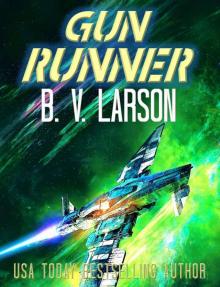 Gun Runner
Gun Runner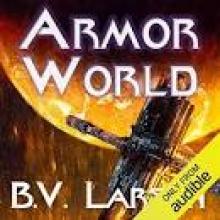 Armor World
Armor World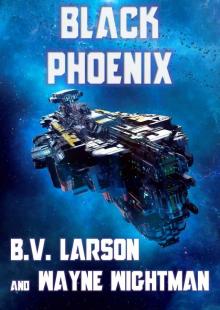 Black Phoenix
Black Phoenix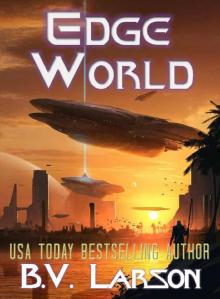 Edge World (Undying Mercenaries Series Book 14)
Edge World (Undying Mercenaries Series Book 14)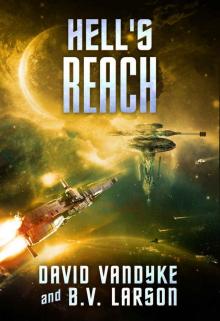 Hell's Reach (Galactic Liberation Series Book 6)
Hell's Reach (Galactic Liberation Series Book 6)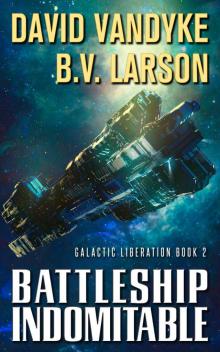 Battleship Indomitable
Battleship Indomitable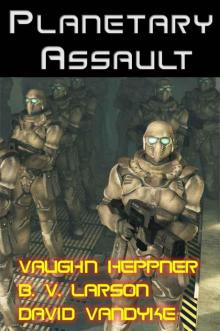 Planetary Assault (Star Force Series)
Planetary Assault (Star Force Series)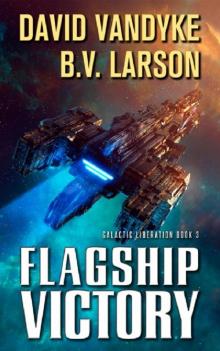 Flagship Victory (Galactic Liberation Book 3)
Flagship Victory (Galactic Liberation Book 3)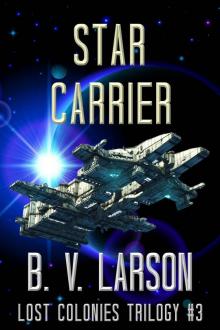 Star Carrier (Lost Colonies Trilogy Book 3)
Star Carrier (Lost Colonies Trilogy Book 3)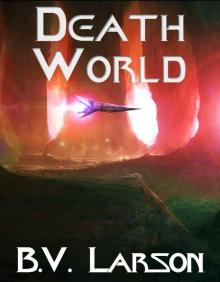 Death World (Undying Mercenaries Series Book 5)
Death World (Undying Mercenaries Series Book 5)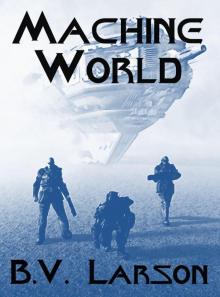 Machine World (Undying Mercenaries Book 4)
Machine World (Undying Mercenaries Book 4) Mech 2
Mech 2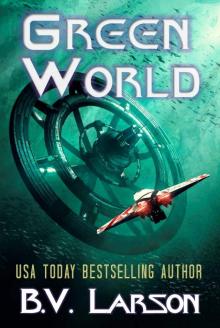 Green World
Green World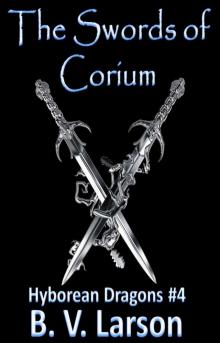 The Swords of Corium
The Swords of Corium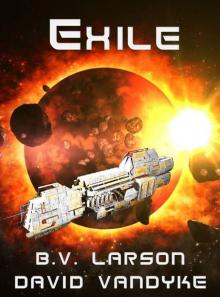 Star Force 11: Exile
Star Force 11: Exile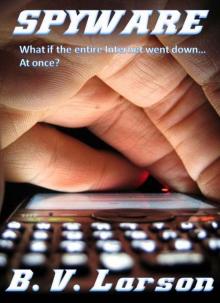 SPYWARE BOOK
SPYWARE BOOK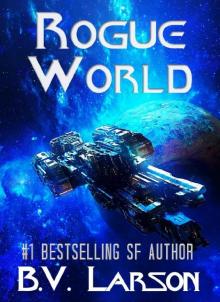 Rogue World (Undying Mercenaries Series Book 7)
Rogue World (Undying Mercenaries Series Book 7)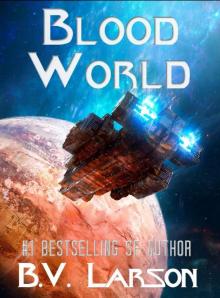 Blood World (Undying Mercenaries Series Book 8)
Blood World (Undying Mercenaries Series Book 8)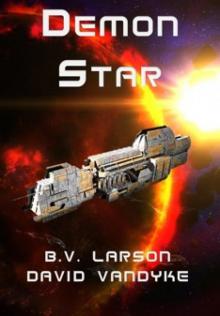 Demon Star
Demon Star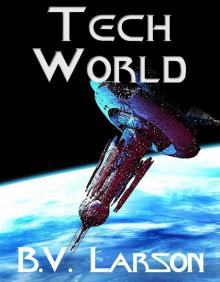 Tech World (Undying Mercenaries Series)
Tech World (Undying Mercenaries Series)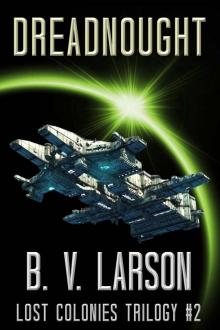 Dreadnought (Lost Colonies Trilogy Book 2)
Dreadnought (Lost Colonies Trilogy Book 2) Shifting
Shifting To Dream with the Dragons (Hyborean Dragons)
To Dream with the Dragons (Hyborean Dragons)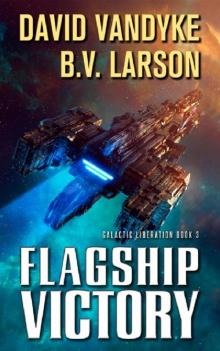 Flagship Victory
Flagship Victory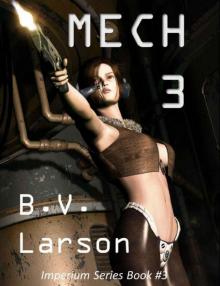 Mech 3: The Empress
Mech 3: The Empress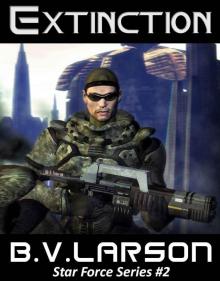 Extinction Ebook Full
Extinction Ebook Full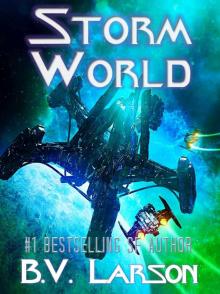 Storm World (Undying Mercenaries Series Book 10)
Storm World (Undying Mercenaries Series Book 10)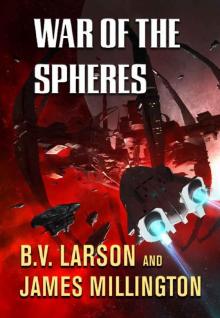 War of the Spheres
War of the Spheres MECH EBOOK
MECH EBOOK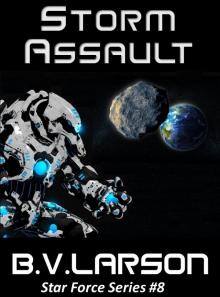 Storm Assault (Star Force Series)
Storm Assault (Star Force Series)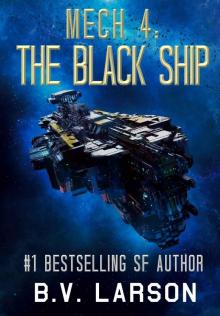 Mech 4: The Black Ship (Imperium Series Book 5)
Mech 4: The Black Ship (Imperium Series Book 5) Technomancer
Technomancer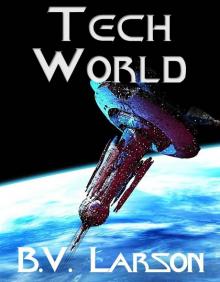 Tech World
Tech World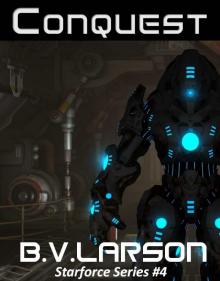 Conquest (Star Force Series)
Conquest (Star Force Series)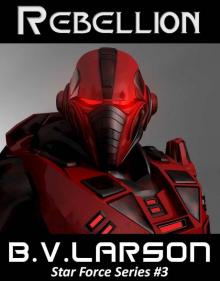 Rebellion sf-3
Rebellion sf-3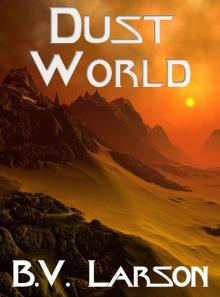 Dust World
Dust World The Dragon Wicked
The Dragon Wicked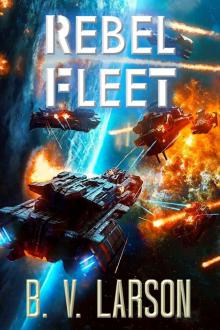 Rebel Fleet
Rebel Fleet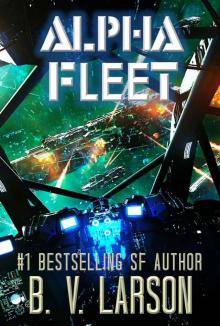 Alpha Fleet (Rebel Fleet Series Book 3)
Alpha Fleet (Rebel Fleet Series Book 3)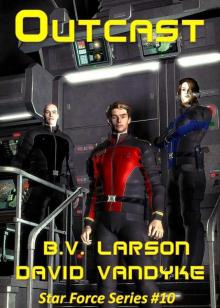 Star Force 10: Outcast
Star Force 10: Outcast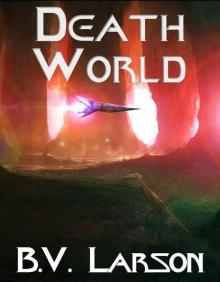 Death World
Death World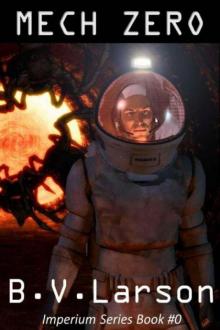 Mech Zero: The Dominant
Mech Zero: The Dominant The Sorcerer's Bane
The Sorcerer's Bane Battleship Indomitable (Galactic Liberation Book 2)
Battleship Indomitable (Galactic Liberation Book 2) Haven Magic
Haven Magic Amber Magic (Haven Series #1)
Amber Magic (Haven Series #1)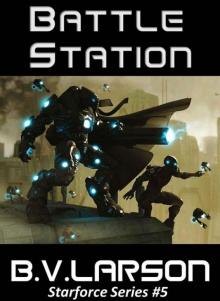 Battle Station sf-5
Battle Station sf-5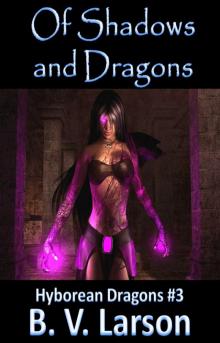 Of Shadows and Dragons
Of Shadows and Dragons Starfire
Starfire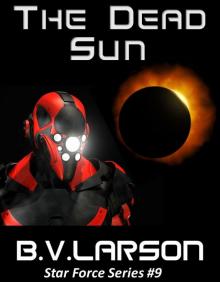 The Dead Sun (Star Force Series)
The Dead Sun (Star Force Series)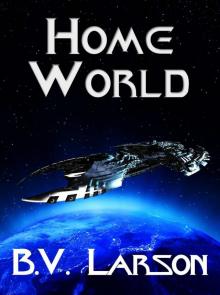 Home World (Undying Mercenaries Series Book 6)
Home World (Undying Mercenaries Series Book 6)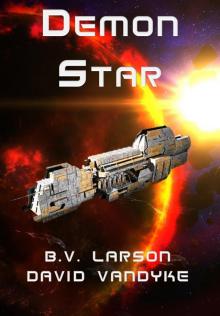 Star Force 12 Demon Star
Star Force 12 Demon Star Dream Magic
Dream Magic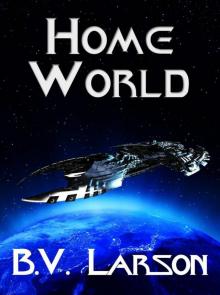 Home World
Home World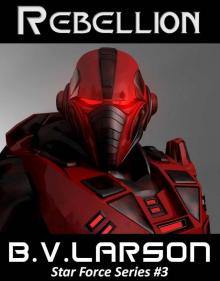 Rebellion Ebook Full
Rebellion Ebook Full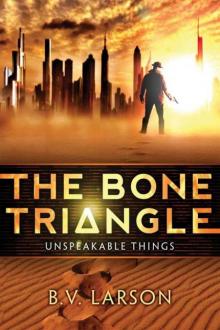 The Bone Triangle
The Bone Triangle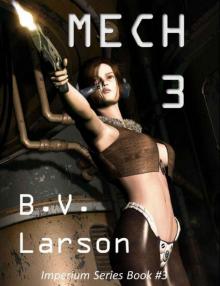 The Empress i-3
The Empress i-3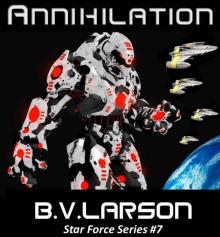 Annihilation (Star Force Series)
Annihilation (Star Force Series)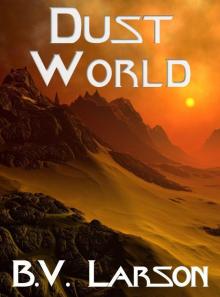 Undying Mercenaries 2: Dust World
Undying Mercenaries 2: Dust World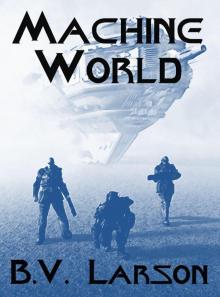 Machine World
Machine World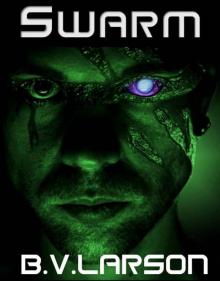 Swarm
Swarm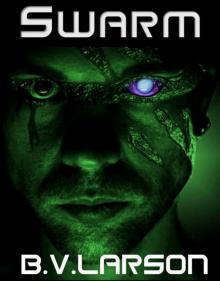 Swarm sf-1
Swarm sf-1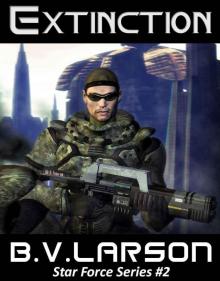 Extinction sf-2
Extinction sf-2 Amber Magic h-1
Amber Magic h-1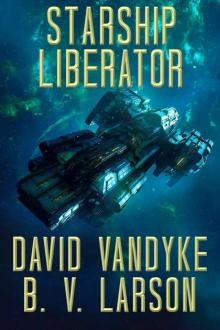 Starship Liberator
Starship Liberator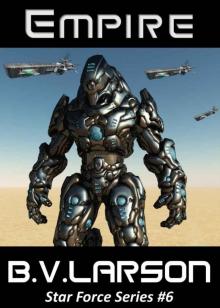 Empire Ebook Full
Empire Ebook Full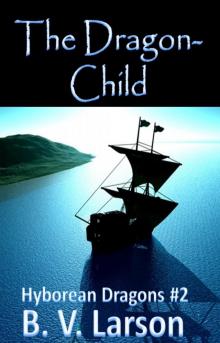 The Dragon-Child
The Dragon-Child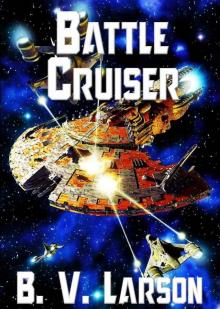 Battle Cruiser
Battle Cruiser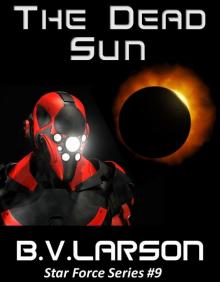 The Dead Sun
The Dead Sun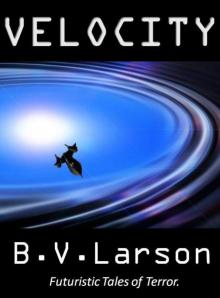 Velocity
Velocity Creatures
Creatures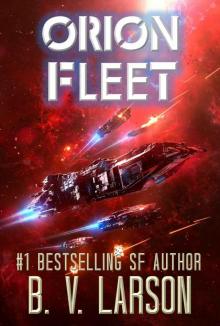 Orion Fleet (Rebel Fleet Series Book 2)
Orion Fleet (Rebel Fleet Series Book 2)